Books by Fellows
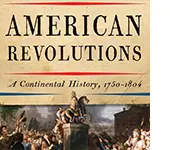
The American Revolution is often portrayed as a high-minded, orderly event whose capstone, the Constitution, provided the ideal framework for a democratic, prosperous nation. Alan Taylor, two-time winner of the Pulitzer Prize, gives us a different creation story in this magisterial history of the nation's founding.
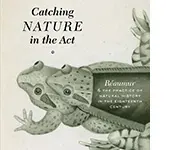
At the center of Terrall's study is René-Antoine Ferchault de Réaumur (1683–1757)—the definitive authority on natural history in the middle decades of the eighteenth century—and his many correspondents, assistants, and collaborators. Through a close examination of Réaumur's publications, papers, and letters, Terrall reconstructs the working relationships among these naturalists and shows how observing, collecting, and experimenting fit into their daily lives.
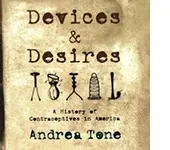
In Devices and Desires, Andrea Tone breaks new ground by showing what it was really like to buy, produce, and use contraceptives during a century of profound social and technological change. A down-and-out sausage-casing worker by day who turned surplus animal intestines into a million-dollar condom enterprise at night; inventors who fashioned cervical caps out of watch springs; and a mother of six who kissed photographs of the inventor of the Pill -- these are just a few of the individuals who make up this riveting story.
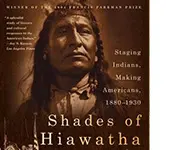
A century ago, U.S. policy aimed to sever the tribal allegiances of Native Americans, limit their ancient liberties, and coercively prepare them for citizenship. At the same time millions of arriving immigrants sought their freedom by means of that same citizenship. In this subtle, eye-opening new work, Alan Trachtenberg argues that the two developments were, inevitably, juxtaposed: Indians and immigrants together preoccupied the public imagination, and together changed the idea of what it meant to be American.
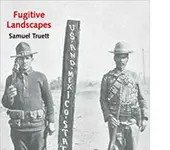
In the nineteenth and early twentieth centuries, Mexicans and Americans joined together to transform the U.S.–Mexico borderlands into a crossroads of modern economic development. This book reveals the forgotten story of their ambitious dreams and their ultimate failure to control this fugitive terrain.
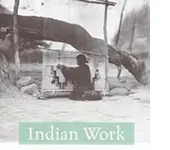
Representations of Indian economic life have played an integral role in discourses about poverty, social policy, and cultural difference but have received surprisingly little attention. Daniel Usner dismantles ideological characterizations of Indian livelihood to reveal the intricacy of economic adaptations in American Indian history.
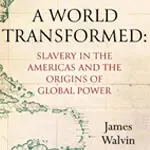
A comprehensive study of how slavery and enslaved people shaped the modern world.
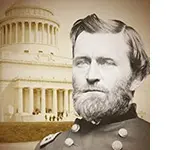
At the time of his death, Ulysses S. Grant was the most famous person in America, considered by most citizens to be equal in stature to George Washington and Abraham Lincoln. Yet today his monuments are rarely visited, his military reputation is overshadowed by that of Robert E. Lee, and his presidency is permanently mired at the bottom of historical rankings. In an insightful blend of biography and cultural history, Joan Waugh traces Grant's shifting national and international reputation, illuminating the role of memory in our understanding of American history.
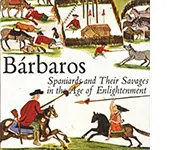
This landmark book explores how Spain tried to come to terms with independent Indians on the frontiers of its American empire in the late 1700s.
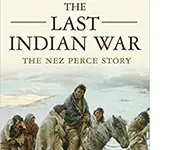
This newest volume in Oxford's acclaimed Pivotal Moments series offers an unforgettable portrait of the Nez Perce War of 1877, the last great Indian conflict in American history. It was, as Elliott West shows, a tale of courage and ingenuity, of desperate struggle and shattered hope, of short-sighted government action and a doomed flight to freedom.
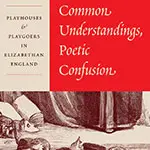
William N. West proposes a new account of the kind of participatory entertainment expected by the actors and the audience during the careers of Shakespeare and his contemporaries.
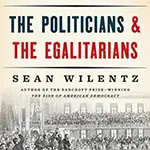
“There are two keys to unlocking the secrets of American politics and American political history.” So begins The Politicians & the Egalitarians, Princeton historian Sean Wilentz's bold new work of history.
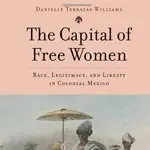
A restoration of the agency and influence of free African-descended women in colonial Mexico through their traces in archives.
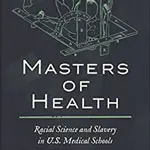
Medical science in antebellum America was organized around a paradox: it presumed African Americans to be less than human yet still human enough to be viable as experimental subjects, as cadavers, and for use in the training of medical students. By taking a hard look at the racial ideas of both northern and southern medical schools, Christopher D. E. Willoughby reveals that racist ideas were not external to the medical profession but fundamental to medical knowledge.
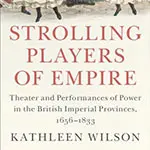
Kathleen Wilson reveals how the performance of English theater and a theatricalized way of viewing the world shaped the geopolitics and culture of empire in the long eighteenth century.
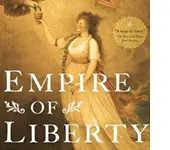
The Oxford History of the United States is by far the most respected multi-volume history of our nation. Now, in the newest volume in the series, one of America's most esteemed historians, Gordon S. Wood, offers a brilliant account of the early American Republic, ranging from 1789 and the beginning of the national government to the end of the War of 1812.
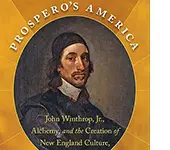
In Prospero's America, Walter W. Woodward examines the transfer of alchemical culture to America by John Winthrop, Jr., one of English colonization's early giants. Winthrop participated in a pan-European network of natural philosophers who believed alchemy could improve the human condition and hasten Christ's Second Coming.
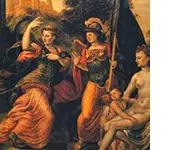
Written around 1580, Philip Sidney's 'Arcadia' is a romance, a love story, a work of wit and enchantment set in an ancient and mythical land. But, as Blair Worden now startlingly reveals, it is also a grave and urgent commentary on Elizabethan politics. Under the protective guise of pastoral fiction, Sidney produced a searching reflection on the misgovernment of Elizabeth I and on the failings of monarchy as a system of government.

The scientists affiliated with the early Royal Society of London have long been regarded as forerunners of modern empiricism, rejecting the symbolic and moral goals of Renaissance natural history in favor of plainly representing the world as it really was. In Aesthetic Science, Alexander Wragge-Morley challenges this interpretation by arguing that key figures such as John Ray, Robert Boyle, Nehemiah Grew, Robert Hooke, and Thomas Willis saw the study of nature as an aesthetic project.

Gideon Yaffe presents a ground-breaking work which demonstrates the importance of philosophy of action for the law. Many people are serving sentences not for completing crimes, but for trying to. So the law governing attempted crimes is of practical as well as theoretical importance. Questions arising in the adjudication of attempts intersect with questions in the philosophy of action, such as what intention a person must have, if any, and what a person must do, if anything, to be trying to act.